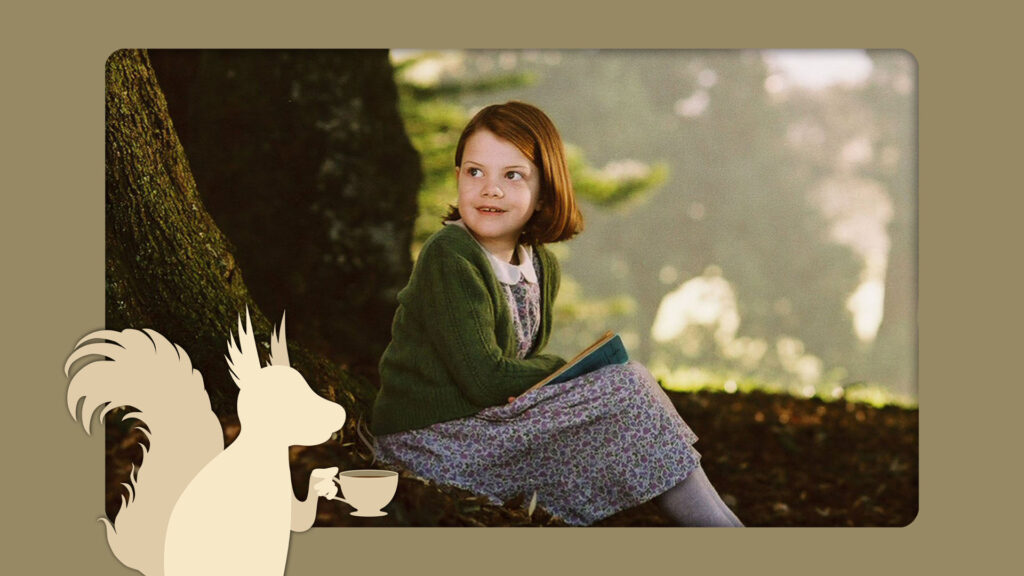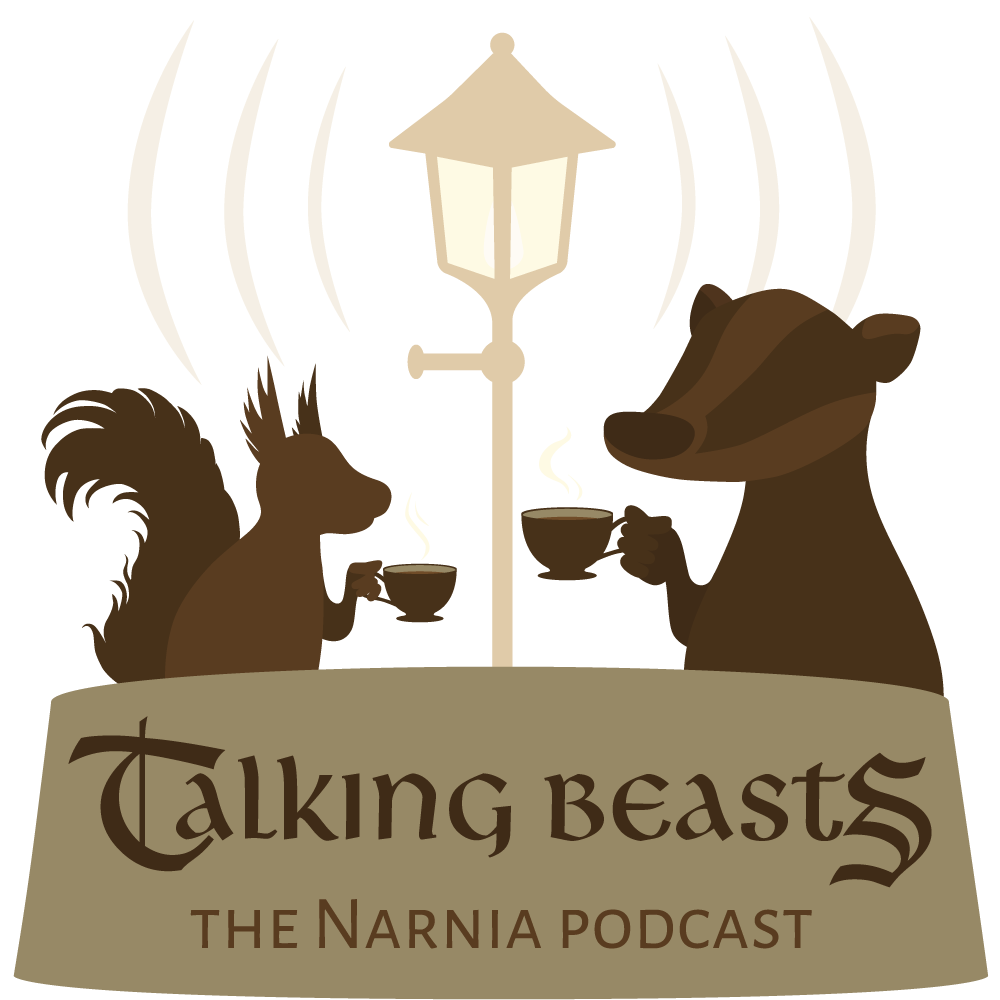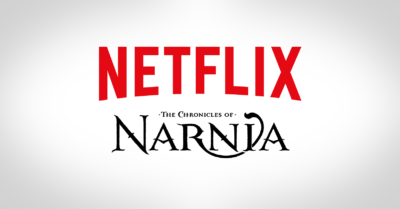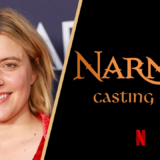Book to Screen: What Fans Really Want | Talking Beasts

Podcast Discussion
NarniaWebbers are united in their desire for Netflix’s Narnia productions to be faithful adaptations… but often disagree on exactly what that means. Is it as simple as following C.S. Lewis’s words as closely as possible? Why do some book-to-film adaptations fail while others succeed? And, as fans of the book, how much are we concerned about making the stories work for non-readers?
Listen to the discussion and post a comment!

Podcast: Play in new window | Embed






Personally, I've never expected or demanded a word for word adaptation. Partly because I don't think that would ever happen today, and partly because I don't think that would even work. For me a good adaptation is staying true to the core of the original work. Sure, there's going to be some changes, cuts, things expanded upon, and to some extent I those are necessary to make it work in a new medium. But, I think as long as an adaptation stays true to the central story, themes, characters, ideas, and tone that make the book what it is, and make that work in the new medium, it will be a good adaptation.
I'm not sure I completely agree with Glumpuddle's notion of: if it's not a great movie then it's not a great adaptation. Now, I do think there's some truth to the idea. A great story is a great story, and if you take a great book and make a terrible movie clearly you did something wrong. But, if you make a great movie that's completely different from the core of the book it's adapting, can you really call that a good adaptation?
As for how much I care what non-fans think of Narnia adaptations. I definitely agree that I want them to be accessible for a general audience and for them to be able to essentially get the same experience from the film\show that you would from the book (Personally I think that's is kind of just a part of making a good adaptation.) But, at the same time, I wouldn't want to get so concerned with make something accessible for a general audience to the point that it compromises what makes the books great to begin with.
I agree with you on adaptation: Make the story work in the new medium.
Glumpuddle notes LotR as an anomaly. And it kind of is. It’s also markedly different from the source material while still succeeding with its themes.
(The Lord of the Rings works as an adaptation because it improves upon the book in one aspect: Viscerally. The book is consistently exciting in its low-key way, but I didn’t think so when I first read it. But the movie trilogy made it immediately clear what’s at stake in the story. Without telling the audience what the plot will be like. And it works.)
For me, one of the marks of a great adaptation is that when it isn't word for word, the words still sound like they were written by the author of the source. You can hear the "old" creator's voice speaking through the new creation. The Walden Media Narnia movies had a few moments of this but not consistently enough for me to say they're great adaptations.
Once in a while, I'll enjoy an unfaithful adaptation of a book I love if there's something really good about the adaptation in its own right. I'm sometimes reluctant to say that the Prince Caspian movie is a good adaptation of the book because it changes the characters of Peter and Caspian so much and cuts and alters so many things. But I honestly find the movie's story interesting and really fun to watch.
The question of how I want book nonfans to react to adaptations is a really good one but hard for me personally to answer. When I watch a movie or a show, I don't think about what other people would think of it or whether they'd enjoy it. I just think about my own experience of thing. What Glumpuddle said about the adaptation being like an advertisement for the book really resonated with me. I want it be so that people who would like the books like the adaptations for the same reason and people who would dislike them dislike the adaptations for the same reason. (Well, ideally I'd rather everyone enjoyed adaptations since I'd rather people enjoy the things they watch. But you know what I mean.)
I think of a good adaptation as being one that I'd recommend to people unfamiliar with the source as an introduction to it. While the Narnia movies so far haven't strayed hopelessly far from the tone of their source, they strayed enough that I don't think I'd recommend them as introductions to the books. But I wouldn't recommend people who haven't read the books actively avoid them either. (Well, except for The Voyage of the Dawn Treader maybe.)
P.S.
I know I keep harping on this but when are you guys going to finish The Horse and his Boy analysis? You're so close to the last two chapters which are some of my favorites.
I totally forgot to sum up my thoughts on whether adaptations should be for fans of the source or newcomers! My answer is…both. People unfamiliar with the source should be able to understand and enjoy the adaptations on their own. But a good adaptation shouldn't leave the majority of fans unhappy.
"are you guys going to finish The Horse and his Boy analysis?"
Yes, the final two HHB commentaries are scheduled to be posted on May 17 and June 17! Sorry it has been dragging out. Delay was caused by having the opportunity to do video episodes, and wanting to address the Mark Gordon comments.
Thanks for pointing out Harry Potter, Glumpuddle. That was a strange time in my life. At 11, I spent so many months of my life imagining what the books would look like on screen, only for them to look and feel like the previous films. I considered that poor adaptation: Why make the movie at all if you’re going to cut out all the parts that made a specific book unique?
We all know why. (I was flabbergasted at age 12 why the filmmakers would spend their time making these movies while making the plot confusing for the average viewer.) Harry Potter succeeded on the sheer power of its brand – and gradually because we saw the actors grow up from kiddies into young adults.
Narnia won’t have that luxury this time. Well likely see all the books made in the next 3-5 years. I hope that whatever changes are made to the books doesn’t stray from the story. (David Magee gave Jill a backstory, I think. If she has an abusive father and an absent mother, don’t make more of it than what the book would have. Silly example.)
Adaptations should work for those who know nothing of Narnia, but know how to experience joy on screen. Anybody else needs to get used to Lewis.
Every fan is different. Every fan wants different things. So I'm primarily speaking for myself here, but having been around the past 15+ years, I know I'm not alone in this opinion.
I understand that movies have to change from the book. I totally get that. And even though I don't always like changes that have been made, I can accept them as long as the change is made for a good reason.
So I don't have a big problem when a storyline is changed or shifted around, as long as it keeps with the theme and the feel with the book. The scene in Walden's LWW with the White Witch and Edmund and Tumnus in prison was really, really good! Whereas the castle battle in Walden's PC I struggled with because Peter and Susan were there. If it had just been Caspian and the Narnians it would have been fabulous, but because Caspian blew the horn, and the horn brings help, I couldn't accept Peter leading a bunch of Narnians to their death. It went against a major theme of the book.
What I find to be a much more unforgivable change is a change to a character. On occasion it works, but those types of changes are always much more controversial. In LWW the characters were pretty well spot on, and I think that played a huge role in its appeal. With PC you had Peter's big character change to show his angst at being a teen again, some liked it, some hated it *raises hand*, and then of course the big added romance between Susan and Caspian which was not well received at all. Both changes were a very stereotypical Hollywood move, and neither really added anything to the movie.
As for VDT, that storyline took such a heavy beating that the final product made no sense. The themes from the book were also heavily altered. It wasn't about Caspian's promise to Aslan to find the seven lords, instead it was about finding seven swords to stop the green mist. Even Reepicheep was trying to "earn the right" to see Aslan's country which was a huge slap in the face to everything Lewis believed in.
To summarize, the storyline can accept some tweaking provided the themes are left intact and the story is respected. The characters can have their stories built on or expanded, but NOT changed.
As to who to make the movie for…
Initially I would have said 'absolutely not' for the non-fans of the books. When I hear that, I think of PC where they added more conflict and romance precisely for that reason. But both Gp and Rilian had some excellent points in the podcast which made me realize our definition of non-fans is different. I think of people who don't like the books, you all are thinking of people who have never been introduced to them.
I don't know how many people remember before LotR came out. When I was in high school and it was announced that those movies were being made, I knew two people besides myself who had read the books: my mom, and a good friend of mine. Two! Narnia was far and away more popular and most people liked LWW at the very least.
And then the LotR movies came out, and they were fabulous, and to this day I'm not sure we will ever see the likes of them again because everybody is too busy trying to emulate them rather than letting their own adaptation stand on its own feet.
So if you ask me who to make the Narnia movies for? My answer is simple. Make it for C. S. Lewis. I don't think you can go wrong if you do that, and you will introduce a whole new generation to a wonderful series, and recapture the imagination of the fans who already love the books.
I could be wrong about this (not interested in biographies) but I don't think C.S. Lewis liked movies in general. So it seems kind of absurd to try to aim one at him. (I realize Netflix is probably making a TV series, not a movie series but I think a parallel can still be justly drawn.)
Please don't be offended by my words. I agree with a lot of what you said in your comments.
No, I know exactly what you mean, and I wondered if someone would bring it up, but most of the reasons I remember off the top of my head as to why he didn't care for movies were more technical reasons, and those don't apply as much anymore.
But having said that, even if I'm remembering wrong, I still stand by my statement. Make a movie Lewis would like, and I think you're bound to nail the stories more accurately than if you try to please the fans, or the non-fans, or (Adamson's method) make a movie based on your own memories and interpretation.
Interesting question, what makes for a good adaption. What comes to my mind is the movie Logan. It respects the source material/character and does things we've never seen before, by fitting the character and his world inside a neo-noir western. It takes inspiration from the comic Old Man Logan, but it is NOT the Old Man Logan story.
What I'm saying is a director or writer should have a good "elevator pitch" and creative inspiration, birthed from a love for the source material and not just trying to make money off of being derivative of franchises that have made money in the past (aka Star Wars, Harry Potter, Lord of the Rings, etc).
I think it's less of a matter of translating each paragraph from page to screen and more so asking the right questions. What genre/movie would Aslan, Narnia, the children, etc fit best in? What movie and genre would you best compare each book to? Build a movie elevator pitch off of each book.
Well, you see, I'm someone who would like to be an artist. (The term artist in this context could mean the creator of any thing, books, games, food, etc.) And as an aspiring artist, I can't imagine making a work of art specifically to please someone besides myself. If I had to, I think I'd hate myself. I'd rather do what Adamson did, though as a consumer what I really want is for a creator to aim their work at me. LOL.
I think the average human would put Narnia in the fantasy genre, mostly because of the swords, castles, witches and other magical stuff. I guess I would pretty much go along with that, though Narnia is way less generic than modern fantasy. (It was pretty much the only other universe in the genre at the time,besides Middle Earth.) I haven't thought much about each book perhaps varying in genre… the only thing I can say right now is that VDT just MIGHT fit in the swashbuckler/pirate genre XD.
At the same time, trying to squeeze an inspired, unique thing like Narnia into a genre-mold could result in a somewhat corny adaptation (not to mention,um… unfaithful?)
Walden's VDT is a good example of that. Glad Glumpuddle brought it up. Trying to make it work "in the market" is really not what art (if you consider this an art form, which I sort of do) is all about. I can understand Netflix employees wanting to feed their families, but I think a source-respecting series could sell just as easily as a cranked-out, fast-food-style one.
I love the idea of classifying each book in its own genre for a pitch! But I'm not the best guy to do it. As far as I can tell, they all fit into the adventure genre but they're different kinds of adventures. The Last Battle is arguably two genres smushed together. (I don't mean that as a criticism BTW.)
For me, I am a book purist when it comes to Narnia. I would love to see the visualization of the books and characters on screen, and as much as they can just quote from the book. But, I that does not mean I do not enjoy watching Walden Narnia LWW. I loved that film because of the charm and I felt like they did make a great film and it was not a bad presentation of the books. I also, agree that I worry about what people who have never read the books will think. I do not care of they like it or not, but, I care if they get a horrible presentation of the book and therefore dismiss the book because of that movie. They could also really like the book because of that horrible adaptation and then they go to read the book and they find it is not the same at all. I worry about this way too much. So, yes, I would love a read along movie, or just a great movie with the awesome characters from the book and some of the great scenes from the book. Either one is cool with me, I just worry about changing things that I think could misrepresent the book to new potential
*new potential fans.
Thanks for sharing the Tumnus trivia. I always learn and appreciate something new with the Last Battle. May the Netflix adaptations be successful enough to get to The Last Battle.
Thank you Narniaweb for the Video Stump a Narniawebber video quiz show! It was a heap of fun!
One of my hopes for Narnia screen adaptations is that viewers will read the books after being drawn in to the world and the stories. Think of this: Someone watches the first release of Netflix's Narnia, and then reads all 7 books before the Netflix series has all been released. Then they could be big fans of the world and enjoy both together.
But I think the fans should be considered. I hope that the creative team at Netflix visits Narniaweb and reads our thoughts. I think our experiences with previous adaptations (particularly the Walden trilogy) have given many of us some really good ideas. And the podcast hosts have communicated very thoughtful perspectives on adaptations – and not just in this episode.
To me, the best adaptation of the Narnia books to screen has been Walden's LWW. My reasons for having this opinions are:
1) The key plots points are kept in tact.
2) The film making is done very well (except for some bad blue screen work on the cliff overlooking Narnia). The music and CGI in particular is high quality.
3) Thus, it comes across as a thrilling story as a good film.
4) The characters come across as believable and can be recognised from the books.
5) It has a good vibe or feeling to it.
6) It expands on scenes in a way that makes sense (e.g. the train station in London with their mother).
I also agree with Glumpuddle's previous comments that the films should create an amazing atmosphere. The "feeling" made with lighting, effects like fog and shadow and pacing and sound design can make a run-of-the-mill scene exciting and special. This can do wonders in any film.
I agree, don't make Narnia movies just to make money and don't just do what's popular on the market (i.e. a comparison to Game of Thrones made less than a month ago).
Narnia is a difficult series to adapt to movie/television, which is why I think each book needs an inspired pitch that is the best possible match for the material at this time within the entertainment industry. But it is quite challenging. If there was an easy answer, there would already be seven great Narnia movies. ha
I feel similar. They're certainly in the fantasy realm, but could be implemented in different ways. Horse and His Boy for instance, definitely leans into Arabian Nights-esque adventure. VDT has sea faring, swashbuckler vibes. The Last Battle could be played up like a Braveheart/Saving Private Ryan movie. War, brotherhood and sacrifice. Silver Chair IMO could have some suspense/horror-esque leanings. Not full on horror, but there's plenty of suspence and thrills in that adventure. Plenty of dark imagery, especially when in the Underlands.
Mind you, what I'm suggesting may not be the best match, just spitballing some ideas to further my point that each book can be treated as a unique story as to help reduce audience fatigue of Narnia and the series. When the VDT came out, I noticed a lot of non-fans and fans were quite tired of the Narnia movies. Non-fans felt it was time to quit, wasn't going anywhere. Fans were wore out from dealing with major changes to the stories characters, etc.
Just some thoughts I had on implementation and approach.. Unless Netflix should have a really solid formula for Narnia and are able to pump out seven movies/seasons of the same style of content that people will flock to. But given the past history with Narnia and movies, I'm doubtful of that actually happening, but I'm still optimistic of this Netflix deal! 😀
In the end, Netflix still needs to reach a broad audience, even if the material is at times niche.
I agree, a word for word retelling wouldn't work well. I feel like it would be similar to an audiobook that is both unabridged and has a full voice cast: stay with the original or embrace the change with a new format.
I also think that you can have great movies that are bad adaptations, but I think this mostly happens when the source material has literally gigabytes of information (like 100 years worth of Marvel comic books) OR the premise of the source material was good/creative but the execution wasn't great (The Princess Diaries, in my opinion)
Well, to be fair, he just said that if it isn't a great movie, it's not a great adaptation. He didn't say if it was a great movie, it was also a great adaptation.
Yeah, I realize that after I posted this comment. Turns out I was thinking of the last Facebook comment Gp read at the beginning. Oops
Concern for how the adaptations influence non readers presses on me , as well. In an attempt to keep my sister's first impressions pure, (lol) I tried to forbid her from watching the BBC versions. I didn't want it to play in the back of her head when she actually reads the books.(She watched them anyway and the beavers will haunt her dreams.)
Glumpuddle, why do you think the Focus on the Family’s Radio Theater version of Narnia is a good adaption?
One word: Atmosphere. 🙂
I currently haven’t yet read The Voyage of the Dawn Treader, but thank you for pointing out those plot points. I absolutely adore both The Lion, the Witch and the Wardrobe and Prince Caspian alike, and have watched both movies on DVD many, many times, but I’ve only seen The Voyage of the Dawn Treader about 3 times, and still, to this day, I am not sure I could clearly define what the story about is about if someone asked me.
Visually and tonally, a lot of the movie felt like I had gone from watching a grand New Zealand “Middle-Earth” style epic motion picture, to the quaint cushiness of watching a PBS Masterpiece special on TV, or a bit of light escapism other movie channels might be showing during Olympic season.
The most visible plot in the film to me was Eustace Clarence learning humility during his time as a dragon, and learning to like Reepicheep. The “I AM EUSTACE” scene stands out as one of the most memorable moments for me. I thought the departure sequence with Aslan was arguably the best moment in the film altogether.
I think when it comes down to if for me is that Aslan has to be right because he is based on a real person, a real mind. Aslan is based on what is right and good and that is very complicated especially in the parts of the book that talk about the longing for something else, that talk about pain and suffering with regards to Aslan’s actions, how they talk about choice, and Aslan wanting to be asked, and Aslan being with them but not interfering, about how Aslan is the one who comes to the kids or calls the kids and that nothing they did caused that. It is all very complicated in a lot of different situations and so many writers and directors and show runners seem to not get the nuance of these ideas, so they write Aslan in a way that is incorrect. Like having Eustace do something noble to earn his undragoning is just against everything to do with the integrity of that moment in the story and is just not Aslan as a character. I think, for me, that is where the show or movie lives and dies. Obviously, there are things that are too far, like Susan kissing Caspian, because it served no purpose to the story, but that didn’t ruin the very core of a vital moment in the story the way Eustace’s undragoning did in the VDT movie. The kiss i just didn’t like, the undragoning was just factually incorrect and a complete contradiction to the story and to Aslan’s character and involvement in it.
That is why doing something like elevating an evil character to stand opposite Aslan, like Tash or the White Witch would be such a mistake because it would be factually incorrect and a contradiction at the basic level to what the story is trying to show.
I see you don’t monetize narniaweb.com, don’t waste your traffic, you
can earn extra cash every month with new monetization method.
This is the best adsense alternative for any
type of website (they approve all sites), for more details simply
search in gooogle: murgrabia’s tools